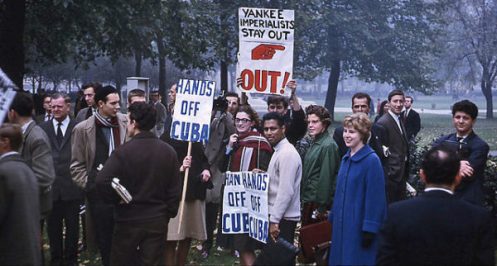Appearance blinds, whereas words reveal. ~Oscar Wilde
I’m outraged. Angered. Even apoplectic. Better yet, I’m incensed. Furious. Indignant. Inflamed. Irate. Livid. Rabid. Rankled. Shocked. Ticked. Roiled. Riled. Hopping mad. Teed off. Steamed up.
Well, not really. To be honest, I’m not outraged nor do I feel at the moment any of its synonyms listed above. But I am skeptical, or if you’d rather, dubious, doubtful, cynical, suspicious and disbelieving. You see, I have a hard time accepting anymore that anyone is as outraged as they say they are, specifically politicians, no matter what side of the proverbial aisle they sit, stand or straddle.
Perhaps I’m just suffering from semantic satiation, a psychological phenomenon in which repetition causes a word or phrase to temporarily lose meaning for the listener, who then perceives the speech as repeated meaningless sounds (thanks Wikipedia!). It’s more than possible I’m so afflicted. Nary a day goes by — whenever I steel my nerves enough to turn on the TV and cue into the news — that I do not hear the word spill out from a politician’s mic’d mouth. Now, I’m not saying they shouldn’t be outraged during these tense, often tragic, and consistently tumultuous times. But I feel the use of the word, over and over and over, is diluting its effect, turning this once fearsome past-tense verb into a common cliché — “I’m outraged!”
But maybe that’s exactly the point. Marc Abley, in The Walrus ( Clichés as a Political Tool — How prefabricated language helps everybody from prime ministers to CEOs disguise what they really want to say), writes: “For the powerful, the repetition of stock phrases can be a valuable tactic. These phrases serve to fortify rhetorical armour, deflecting all attack. The armour often brings clichés and abstract words together in a metallic professional embrace.”
If Abley is right, then it isn’t a stretch to think politicians choose such an often-spoke and thus meaning-drained word as “outrage” to show leadership on an issue they don’t really want to lead, or can’t lead without damaging their status within a party or with the voting public. As George Orwell said, “The enemy of clear language is insincerity.” Or maybe they do really care, but know that protecting themselves and buying time is the best way to ensure victory and the creation of positive change. It’s sort of the Sun Tzu ( The Art of War) approach to conflict: “The wise warrior avoids the battle.”
I’m sure I’m looking too deeply into this. Evelyn Waugh would agree. He said, “ I think to be oversensitive about clichés is like being oversensitive about table manners.”
Still, I’d like a bit more nuance when it comes to politicians expressing their outrage. Certainly more creativity. Any fiction writer worth their salt knows the old axiom “Show Don’t Tell.”
Rather than write, for example, “He was cold,” you pen, “He shook from head to toe, looking for the world like a belly dancer on ice.” You get the point. So maybe instead of voicing outrage, a politician might use pantomime — wild gesticulations and a general flailing of their limbs to express their emotion.
Or like the legendary comedian Gallagher (Google him if you dare young people), they could bring to a press table a watermelon or a pumpkin, maybe even a plump and overripe summer squash, which they could smash with a rubber mallet or their bare fists if they are feeling vigorous. I think that would get more attention and make the point they are really mad about something, don’t you agree?
I’m being extreme of course, and for a laugh (I hope). Humor is not such a terrible thing to inject into political discussions these days. And if we can find light moments here and there amidst all the darkness, we’re all the better for it.
The real message I want to impart, however, is that we need to listen, really listen, to what our leaders are saying, word for word. Be engaged, be inquisitive, and don’t let language be used as a means to blunt the truth or keep us from it.
Socrates said, “The unexamined life is not worth living.” Maybe, today, we should consider also that the unexamined word is not worth saying.
The importance of reflecting and recharging once the pandemic is over.







